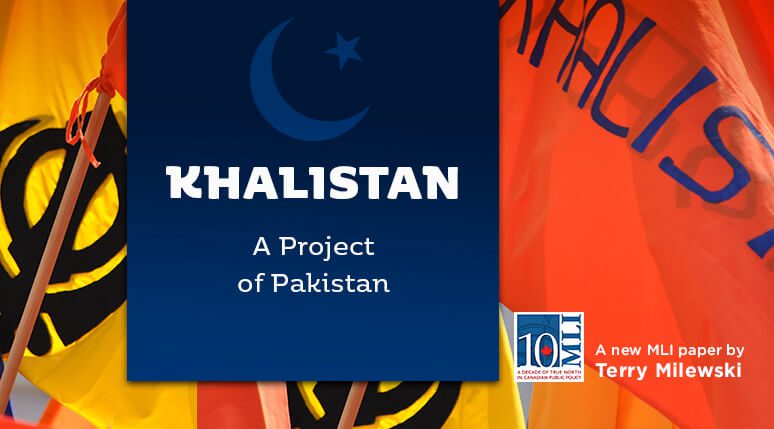OTTAWA, ON (September 9, 2020): In 2018, an international lobby campaign advocating for an independent Khalistan successfully removed references to “Sikh (Khalistani) extremist ideologies and movements,” from the Ministry of Public Safety’s Public Report on the Terrorism Threat to Canada. In response, the federal government took the unprecedented step of amending its national security statement, placating a vocal domestic constituency, and replacing the original language with “Extremists who support violent means to establish an independent state within India.”
In the ensuing domestic debate, a more important issue was obscured. This was also the first time that Canada’s national security community elevated violent extremists advocating for an independent Khalistan into a top-five threat to Canadian national security.
In a new MLI publication, “Khalistan: A Project of Pakistan,” veteran journalist Terry Milewski researches the Khalistan movement and discovers its reality as a geopolitical project nurtured by Pakistan, threatening the national security of Canadians and Indians. This week, reports from India continue to demonstrate the threat that Pakistan-sponsored Khalistani terrorism poses.
It might seem surprising that 35 years after Khalistani extremists bombed Air India Flight 182, the deadliest attack on aviation before 9/11, that a new generation of violent extremists has now emerged in Canada and India. Given Pakistan’s continued campaign of agitation, “It’s clear who’s really driving the Khalistan bus: Pakistan,” writes Milewski. In truth, “the Khalistan movement has been going nowhere in the Sikhs’ home state.”
For Canadians, Pakistan’s actions pose a real and present national security risk. As the Khalistani cause has little traction in Punjab, Pakistan’s support of Khalistani extremists entails leveraging extremists based in Canada, including supporters with ties to terrorism. With a looming “referendum” scheduled for November 2020 by proponents of an independent Khalistan, there has been skepticism from Sikh communities around the world. For its part, the Canadian government has stated it will not recognize it. However, the report warns that the referendum provides oxygen that fuels extremist ideologies, radicalizes young Canadians, wreaks havoc on reconciliation, and usurps legislatures.
In the foreword to this report, Ujjal Dossanjh, former British Columbia Premier and former federal Liberal Cabinet Minister, and Shuvaloy Majumdar, MLI Program Director and Munk Senior Fellow for Foreign Policy, argue, “The Milewski report should be essential reading for any who wish to understand Pakistan’s influence in guiding the Khalistan proposition, its perversion of the Sikh faith, and its ongoing campaign of extremism and terrorism in two of the world’s important democracies.”
To learn more, read the full paper here.
***
Terry Milewski is a veteran journalist who first visited India as a student in 1967, interviewing Prime Minister Indira Gandhi. Since then, he has returned to India during four decades as a correspondent for CBC TV News. He has covered major events such as the Air India bombing and in 1986, he became CBC’s first Middle East Bureau Chief. In 1997, he won the Gemini Award for his reporting on the 1997 APEC Summit. He has since retired as the CBC’s Senior Correspondent in 2016, and returns occasionally as a guest host on CBC’s Power and Politics.
For more information, media are invited to contact:
Brett Byers
Communications and Digital Media Manager
613-482-8327 x105
brett.byers@macdonaldlaurier.ca





